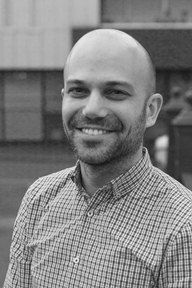WelcomeOver the course of my career as a clinical psychologist I have worked with hundreds of people to help them achieve better mental health. My guiding philosophy is that therapy should be both personalised and evidence-based, and underscored by a strong rapport. I strive to ensure that the therapy "space", psychologically but also physically, is one in which clients feel supported, heard, and understood.
Helping people overcome OCD (Obsessive-Compulsive Disorder) and related conditions is one of my passions. OCD affects many individuals, their families and loved ones. It is a tricky and multifaceted condition that has many guises, and often it can take some time for people to recognise that what they are experiencing is OCD. The good news is that it is a treatable condition. In my many years of practice I have found it to be an absolute privilege to work with clients on their OCD recovery journey and to see them achieve the treatment outcomes they desire. My team and I at Be Psychology & Mental Health in Sydney offer treatment for clients struggling with OCD and related conditions, such as social anxiety, panic disorder, agoraphobia, generalised anxiety disorder, and health anxiety. If you are interested in finding out more about psychological treatment for OCD, please get in touch via the Be Psychology & Mental Health website. My specialist body dysmorphic disorder (BDD) clinic, the Sydney Body Dysmorphic Disorder & Body Image Clinic, provides expert psychological treatment for BDD. For enquiries about BDD, please make contact only via the Sydney Body Dysmorphic Disorder & Body Image Clinic website. Qualifications I completed my Doctorate in Clinical Psychology in 2013 at Monash University. Prior to that I completed my Honours and Bachelors degrees in psychology, also at Monash University. I also hold a Bachelor of Science in Business Information Technology from UNSW. Research Since the beginning of my career I have undertaken and collaborated on research projects to do with OCD and related conditions, as well as body image (with a specific focus on body dysmorphic disorder), and psychosis. In recent years I have wound back my research work to focus on helping people clinically. My main research project at the moment is a study looking at how the use of a suicide risk screening tool can help psychologists provide better treatment for their clients and keep their clients safe. |
Director & Clinical Psychologist
|
Featured articles
Body Dysmorphic DisorderBody dysmorphic disorder (BDD) can be a very distressing and debilitating condition. People with BDD perceive one or more aspects of their appearance to be flawed or physically unattractive, usually when no such flaw is apparent to others. A wealth of evidence shows that when treated by an experienced clinician, BDD can respond well to psychological therapy, especially CBT.
|
Men's Mental HealthWhile it's no secret that men's mental health is a big issue, many men secretly struggle with mental health. Statistics show that men often don't seek help for emotional or personal difficulties, and often feel ashamed about these difficulties. In the world of psychology practice, it's critically important that psychologists approach therapy in an appropriate way when working with male clients.
|
Existential PsychotherapyAt its core, existential psychotherapy is concerned with the big questions: life meaning, the inevitability of death, loneliness and isolation. and the challenges that come with our freedom. Through exploration of these issues and how they may be contributing to our difficulties, we can grow towards self-acceptance, more authentic living, and a life that is more enriching, enjoyable, and fulfilling.
|







